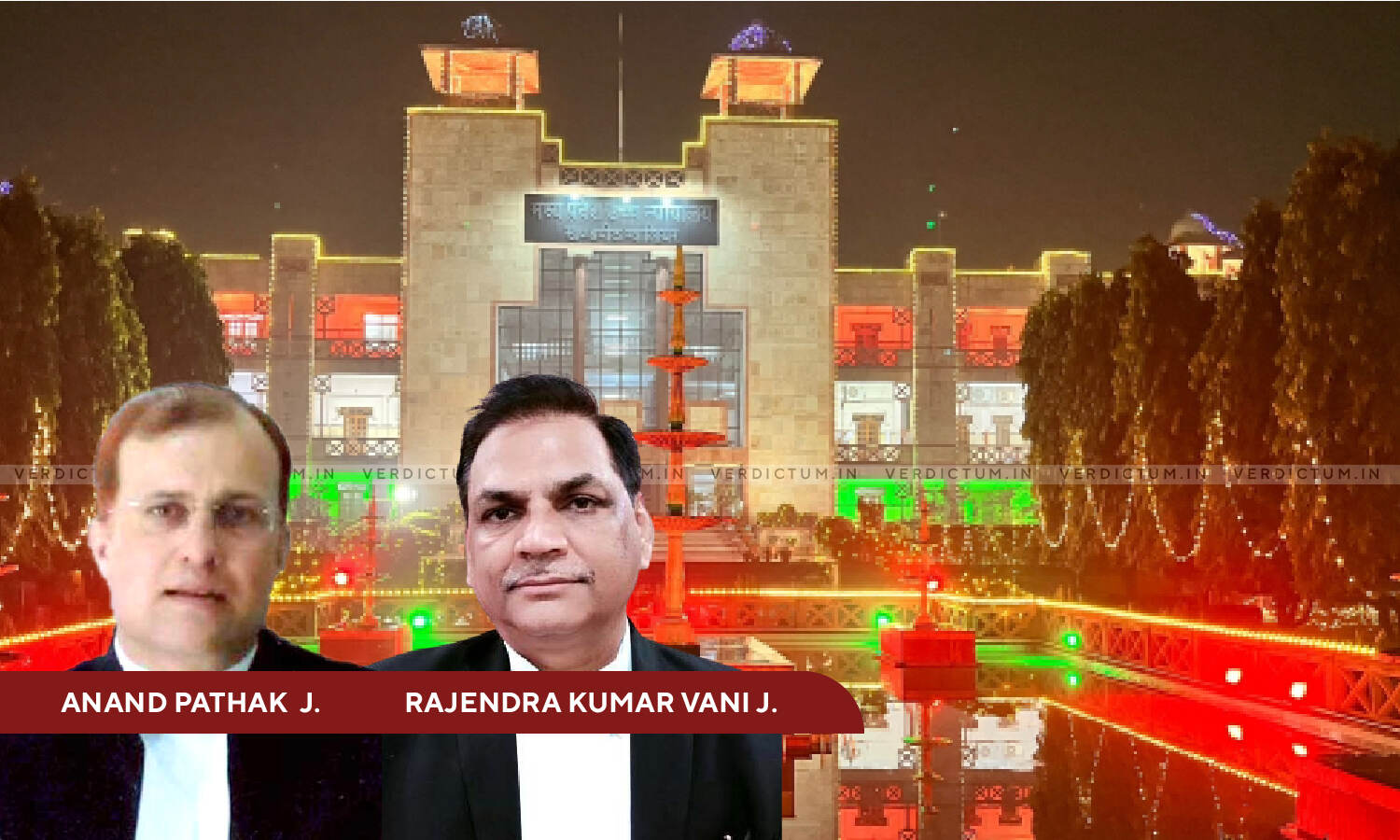Madhya Pradesh High Court Refuses To Entertain Habeas Corpus Plea Of Father Seeking Custody Of Child Based On U.S. Court Order

The Madhya Pradesh High Court has refused to entertain a habeas corpus petition filed by the Petitioner-father seeking custody of his minor son based on a custody order passed by the Superior Court of New Jersey, USA. The Court held that Article 226 of the Constitution cannot be invoked to implement a foreign court decree and clarified that, if civil proceedings are initiated, the competent court may consider the effect of the foreign custody order under Sections 44A and 13 of the Code of Civil Procedure, 1908.
A Division Bench of Justice Anand Pathak and Justice Rajendra Kumar Vani observed, “…petitioner has alternative remedy as per different provisions of CPC including Section 44A and Sections 13 and 14 of CPC and if required and if law permits, may proceed under Guardians and Wards Act, 1890. While doing so, petitioner has to satisfy the exceptions carved out in Section 13 of CPC.”
Advocate Prashant Sharma appeared for the Petitioner, while Government Advocate Saket Udainiya represented the Respondents.
Brief Facts
The Petitioner and Respondent No.2 were married in 2013 and initially resided in the United States. Their son was born in Texas in 2015. In 2018, the Respondent returned to India with the child and has since been residing with her family.
In April 2023, the Superior Court of New Jersey granted the Petitioner divorce and awarded him sole legal and physical custody of the child. Alleging that the Respondent had refused to return the child to the United States, the Petitioner filed a habeas corpus petition under Article 226 seeking the child’s production and repatriation.
Reasoning of the Court
The Court noted that the child had been residing with the Respondent since 2018, and there were no allegations of illegal restraint or harm. Furthermore, the petition was based on a foreign court custody order, and the Petitioner sought its enforcement by invoking the constitutional writ jurisdiction.
The Court referred to the decision of the in Nithya Anand Raghavan v. State (NCT of Delhi) (2017), where the Supreme Court had held that the welfare of the child is paramount and that foreign court orders are not conclusive. Indian courts must undertake an independent inquiry, and writ jurisdiction under Article 226 cannot be used merely to implement a foreign decree.
The Bench observed, “Even otherwise, petitioner has alternative remedy as per different provisions of CPC including Section 44A and Sections 13 and 14 of CPC and if required and if law permits, may proceed under Guardians and Wards Act, 1890. While doing so, petitioner has to satisfy the exceptions carved out in Section 13 of CPC.”
The Bench noted, “In the conspectus of facts and circumstances of the case, despite the fact that petitioner is making efforts to meet his child, legal provisions and judgments as referred above do not come to his rescue…”
Relying on Nithya Anand Raghavan (Supra) the Bench reiterated that the scope of Article 226 did not extend to functioning as an executing court, and noted that the order of the foreign Court must yield to the welfare of the child and in any case cannot be used to convert the jurisdiction under Article 226 into that of an executing court.
The Court held that the Petitioner had not established any ground for issuance of a writ of habeas corpus, however, clarified, “…looking to the nature of dispute and the fact that petitioner being a father, may request respondent No.2 to meet his son and if she feels so, it is her discretion to permit for meeting personally or on video call. That is an expectation raised by the Court and not issuing any command to comply. It is purely between the couple and for respondent No.2 to decide.”
Accordingly, the Court dismissed the petition.
Cause Title: Vishnu Gupta v. State of Madhya Pradesh & Ors. (Writ Petition No. 10746 of 2024)
Appearance:
Petitioner: Advocates Prashant Sharma, Rudraksh Gupta
Respondents: Government Advocate Saket Udainiya; Advocates V.D. Sharma, Harshit Sharma




